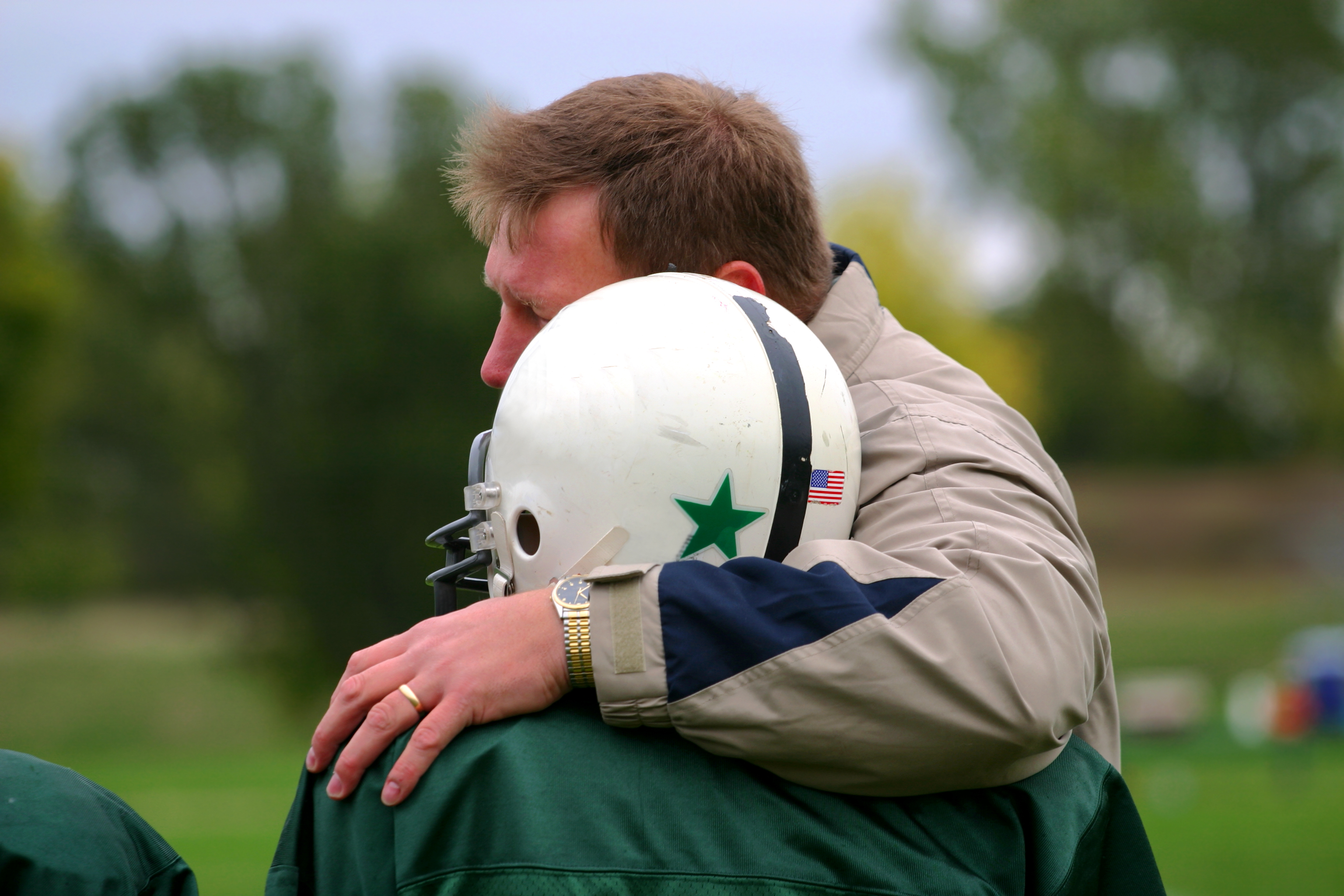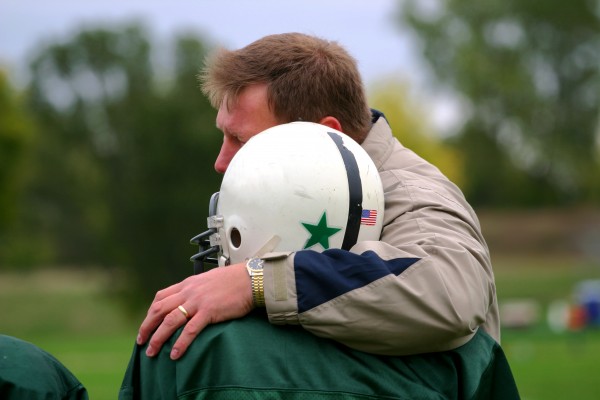
20 Aug Your Inner Athlete: What Makes a Coach a Great Leader
Dr. Haley Perlus continues with weekly tips about ways to empower “Your Inner Athlete.” Discover what makes a coach a great leader.
The example of legends such as John Wooden, Vince Lombardi, Pat Summit, and Phil Jackson prove it takes more than technical and tactical knowledge to be a great coach. Champion coaches instill motivation, self-confidence, and a heightened focus in their athletes to gain that extra percent over their competitors. Although every great coach has his or her unique way of coaching, here are three common strengths most, if not all, possess.
Coaching Strength #1: Wash, Rinse, and Repeat.
Success and defeat are inevitable in sport. For every win, someone will lose and it’s largely the coach’s responsibility to lead by example and keep winning in perspective. Of course, after a win, it’s important to take the necessary time to celebrate success. As well, after a loss, it’s natural to be upset, frustrated and even angry. However, no matter the outcome, a champion coach teaches his athletes to follow the instructions on the back of the shampoo bottle: wash, rinse, and repeat. Win or lose, the only way to get better as an athlete is to accept the scoreboard, assess your efforts and improvements, and then take what you’ve learned and apply it to the next competition.
Coaching Strength #2: The “Deal With It” Attitude
Who ever said sport was fair? When faced with bad calls from the official, poor scores from the judge, a sudden change in the weather right when it’s your turn on the course, or a huge hole in the landing area that’s only getting bigger as more opponents in front of you compete, athletes must understand that you can only influence what is within your control.
Coaches can teach athletes to separate adversity from negativity and focus on performing their best under any circumstance. By simulation training, provided by the coach, athletes can learn to expect and “deal with” difficult situations. They can become solution-oriented athletes where they let their opponents complain about the adverse conditions while they focus on how they can gain a competitive advantage amongst adversity.
Coaching Strength #3: The Right Response
Performance feedback serves three purposes: 1) to motivate athletes to continue exerting effort to make improvements; 2) to reinforce technical and tactical skill development; and 3) to identify what the athlete is doing wrong and how he or she can fix it.
The most effective type of performance feedback that satisfies these three purposes conveys specific information about the athlete’s performance. By clearly and objectively describing the behavior observed, studies continue to show that coaches will see a faster improvement in their athletes’ skill development.
Forget about “good job” comments, unless they are accompanied with specific performance feedback on what the athlete can do to be better. Also, although it’s okay to identify key mistakes the athlete made, the most important part is to leave the athlete will a clear understanding of how to fix the mistake next time.
Whether or not you are currently in a formal leadership role in sport, wellness, and/or business, you have the ability to be a great coach and leader for someone. Take a moment and assess your strengths as well as the strengths of your past and future leaders. Ask yourself what leadership strength can be improved to produce greater results. Then, choose just one specific action–oriented goal you can implement today as you lead someone, perhaps even yourself, to a higher standard of performance.
About Dr. Haley Perlus:
The event wears its name like a glove: “WOW.”
The acronym is a perfect fit for Becca Tudor’s awesome Weekend of Wellness, relatively new festival (the 3rd annual gathering took place in early June) that celebrates overall fitness, including ways grow a spine, man up – yoga, kettle bell, Pilates, cycling, kids’ classes – and also get educated about health trends in general through lectures by doctors, nutritionists, and renowned experts in the field of sports psychology.
Experts such as Dr. Haley Perlus, a stand-out on a long list of superstar women featured at Telluride WOW, already a no-miss event if you are on a path towards personal transformation.
I attended Haley’s lecture about the psychology behind good nutrition and overall health. The holistic contents turned out to be a back door to ways to live a healthy life in general.
We were all left wanting more from this buff, blonde brainiac, so Telluride Inside… and Out invited Haley to blog on our site.
And lucky for us all, Haley agreed.
BIO:
With a Ph.D. in Sport and Exercise Psychology, M.S. in Sport Pedagogy, and numerous fitness and coaching certifications, Dr. Perlus is an expert at empowering athletes of all types and health enthusiasts achieve peak results. An adjunct professor at the University of Colorado, international speaker, former Alpine ski racer, appointed Industry Leader for IHRSA.org,, and author, including soon-to-be-released “The One Minute Diet and Guidebook to Gold.” Dr. Perlus helps people reach their highest standard of performance.
For further information and a free chapter of one of her books, visit www.DrHaleyPerlus.com





Sorry, the comment form is closed at this time.